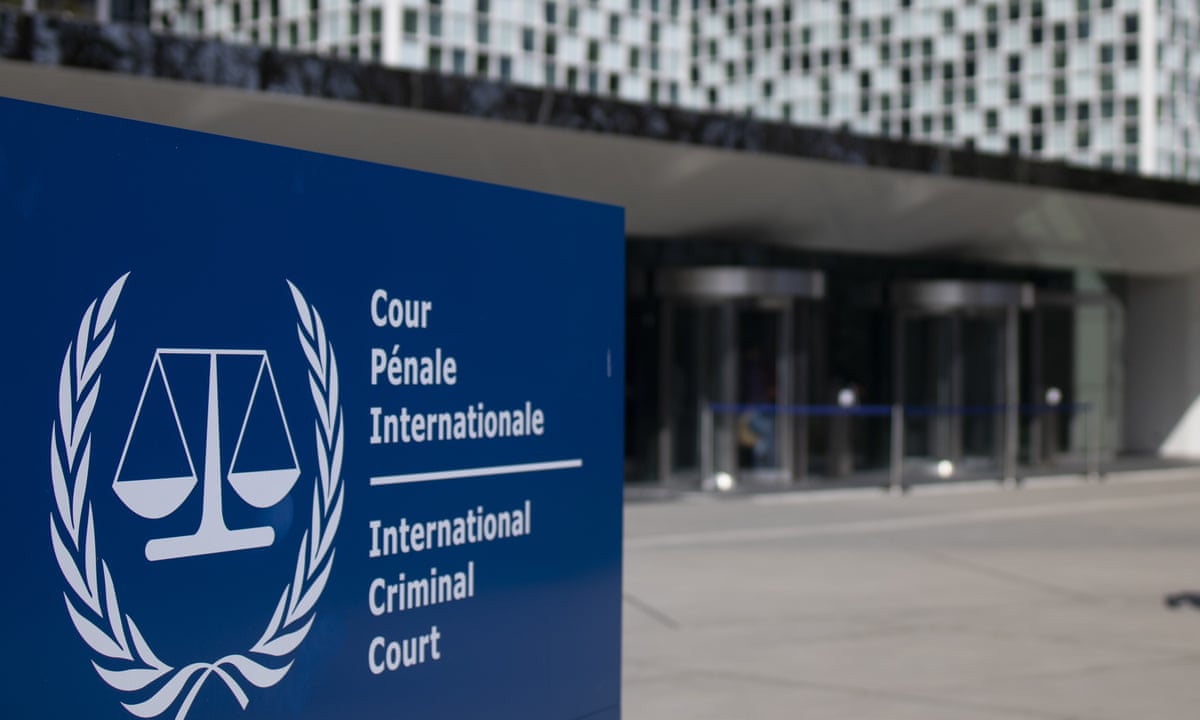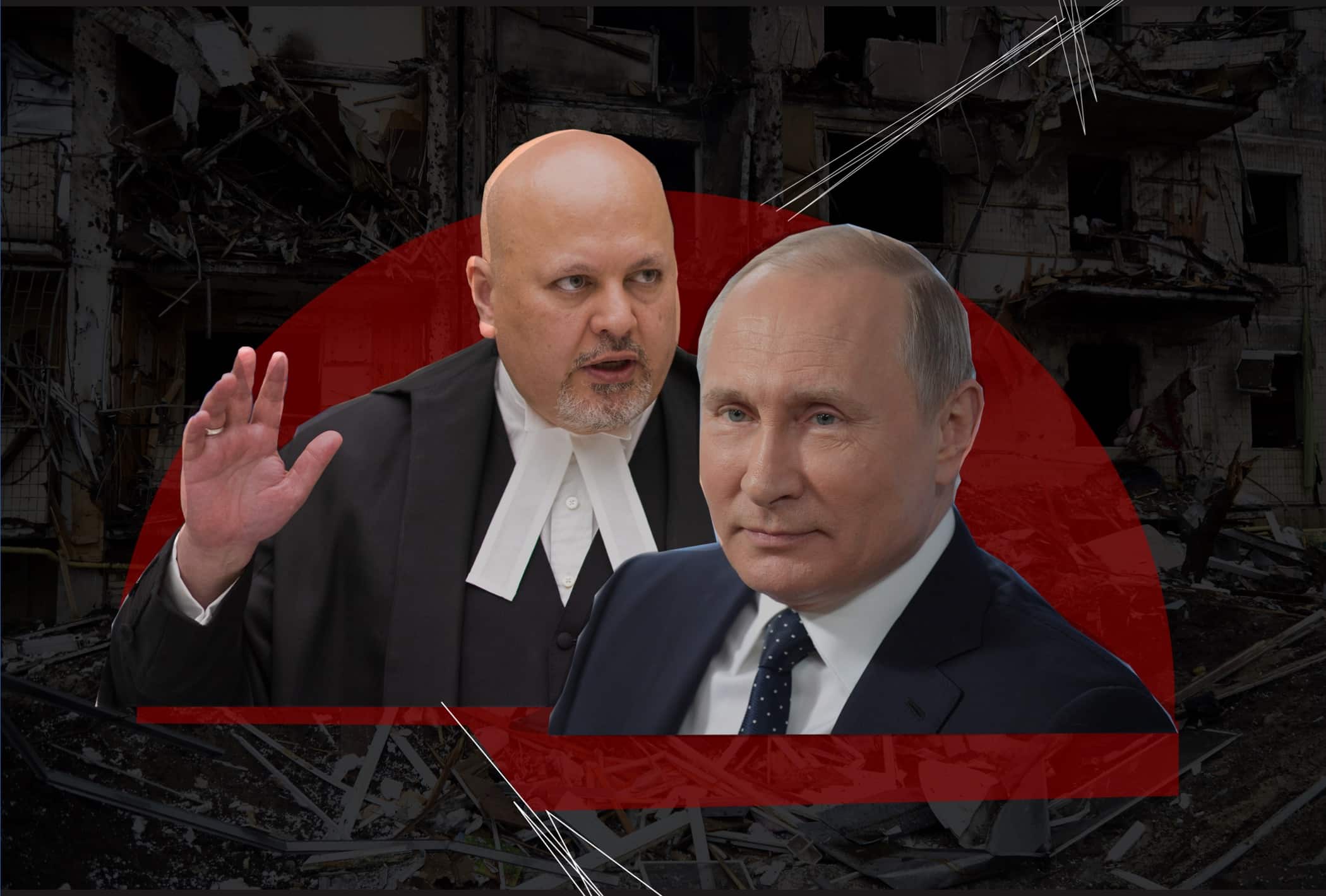Is ICC about to start World War 3? Russia retaliates against arrest warrants.
Russia retaliates by placing ICC prosecutor and judges on wanted list opening criminal charges against them.

Russia through its Internal Affairs Ministry has placed the British prosecutor for the International Criminal Court (ICC), Karim Khan on a wanted list, having been charged with “bringing a knowingly innocent person to criminal liability” and “unlawful accusation of a person of committing a grave or especially grave crime.” These charges filed against Khan are claimed to be felonies. The Russian government also opened criminal cases against ICC judges Tomoko Akane, Rosario Salvatore Aitala and Sergio Gerardo Ugalde Godinez in March.
Background- Arrest warrants by ICC
On, 17 March 2023, Pre-Trial Chamber II of the ICC released arrest-warrants for two people in the reference to the situation in Ukraine, namely, Mr Vladimir Vladimirovich Putin and Ms Maria Alekseyevna Lvova-Belova.

According to Article 8 of the Rome Statute, Putin, President of the Russian Federation, was accused of being liable for the war crimes of wrongful deportation of children and illegal relocation of children from occupied territories of Ukraine to the Russian Federation. The court determined that there are sufficient reasonable grounds for believing the fact that Putin is personally liable for the previously mentioned crimes; first, for having carried out the crimes directly, collectively with other people, and/or through others, and second, for failing to exert adequate oversight on civilian and military colleagues who performed the crimes or permitted the acts to be committed while acting under his effective leadership and oversight, in accordance with superior accountability.
The above-mentioned offences are also reportedly committed by Maria, the Russian Federation’s Office of the President’s Commissioner for Children’s Rights. The court determined that there were ample grounds to assume that she was also accountable personally for committing these offences, whether alone, with others, or indirectly.
The Chamber believed that the warrants should be kept confidential to safeguard the inquiry, witnesses, and victims. The Chamber, however, ruled that it is in the greater interest of justice to give the Registry permission to make publicly available the availability of the warrants, the names of the individuals being investigated, the charges upon which the arrest warrants were granted, and the avenues of accountability as established by the ICC. This is because the behavior dealt with in the current situation is supposedly ongoing, and public knowledge of the warrants could assist in preventing the subsequent commission of criminal activity.
Denial of ICC’s authority as well as allegations
Russia is not a member of the ICC, and hence has previously been declared null and illegal. Russia rejects the ICC’s authority; however the court has maintained that because Ukraine has agreed to recognize its capacity to look into crimes perpetrated by Russia on Ukrainian soil, it may prosecute Russian officials.
Putin has refuted claims that war crimes have been committed, and Russia claims that their program was created specifically to save abandoned children who endured life in the war zone. ICC still went ahead and issued arrest warrants. Russia retaliated by targeting the prosecutor and the judges. Khan was identified in the notification as a male born on March 30, 1970, in Edinburgh, Scotland, although his offence was not stated.

ICC concerned about Russia’s retaliation
The International Criminal Court issued a statement that it is aware and extremely worried with regards to the unwarranted and unjustified coercive tactics which have been reportedly started against ICC officials.
The Presidency of the Assembly of States Parties to the ICC, the court’s management oversight body, said in a statement-
It regrets these acts of intimidation and unacceptable attempts to undermine the mandate of the International Criminal Court to investigate, sanction and prevent the commission of the gravest international crimes.
Further adding that “The ICC finds these measures unacceptable. The court will remain undeterred in the conduct of its lawful mandate to ensure accountability for the gravest crimes.”
In addition to this, the 123 member nations of the ICC were asked in a statement to intensify their attempts to safeguard the court, its employees, and its officials.

Every nation in the world is aware that it is improbable that Putin will be taken before an international court of law to answer for the accusations levelled against him, but the arrest warrant still represents a significant worldwide denunciation of Putin. This makes the underlying purpose of the ICC making the warrant public clear.
Additionally, the ICC is shown appealing to member nations for assistance in apprehending Putin and his alleged ally. Any member state that would dare to act against Russia, however, would have to endure its fury. Does the ICC accept responsibility for safeguarding all of its members against such retaliation?
This situation is identical to NATO’s approach to the conflict between Russia and Ukraine. None of the troops were dispatched to aid Ukraine in defending itself when Russia invaded. NATO, like many other nations, adopted a defensive position and only provided Ukraine with financial, humanitarian, and military aid.
Warrants issued by the ICC appear to be pointless because no nation is willing to take a stand against Russia. However, due to the ICC’s unwarranted activities, Russia has started to target its officials.




